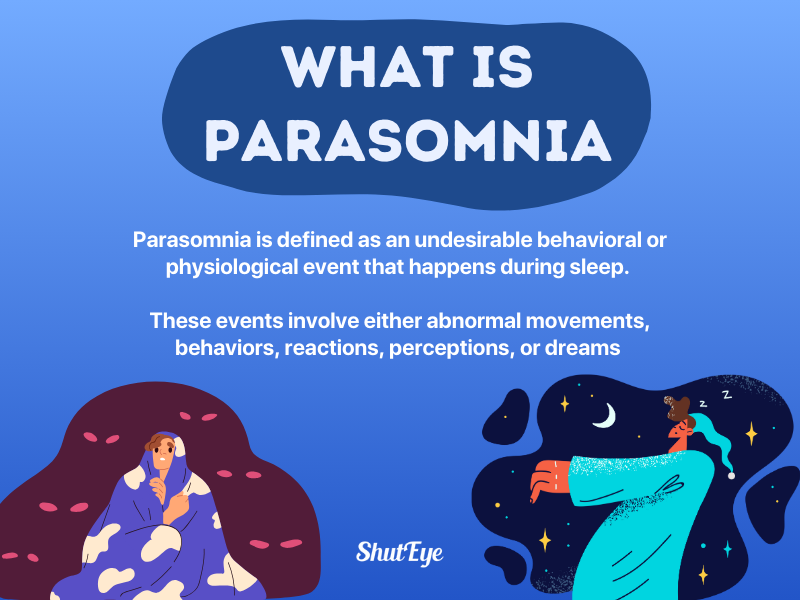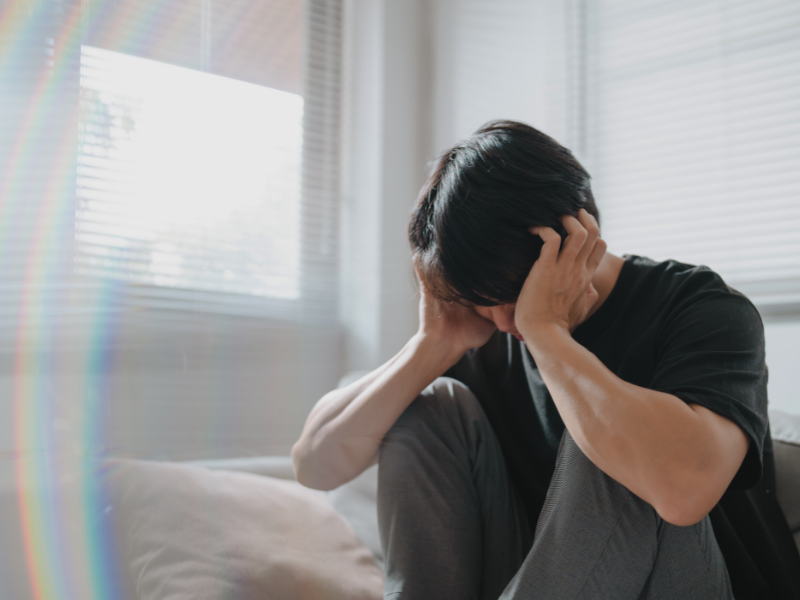


According to various studies, it’s estimated that 10 to 30% of the adult population worldwide experience insomnia and struggle with poor sleep quality [1]. As a result of this struggle, many individuals turn to sleeping pills as a quick fix. While sleeping pills may offer short-term relief for sleep problems, they come with potential side effects that users should be aware of.

Usually, sleeping pills are sleep medications that are used to induce sleep and help you stay asleep. They are also commonly referred to as sedatives, sleep aids, sleep medicines or tranquilizers.
Sleeping pills can be broadly categorized into two main categories— prescription sleeping pills and non-prescription sleeping pills.
Non-prescription sleep medications can be easily found over the counter. They primarily rely on antihistamines as the main ingredient to induce sleep. Some common sleep medicines are diphenhydramine and doxylamine [2].
Prescription sleep medications are usually classified as sedative-hypnotics. Sedative hypnotics, sometimes called ‘depressants’ work by slowing down brain activity to promote calmness and tranquility for rest. They can be used to treat insomnia and sleeplessness temporarily and help relieve anxiety [3], [4].
Different sleeping pills may come with different side effects, but the most common side effects of sleeping pills in the short-term and long-term are as follows [5]:

Some people may increase their risk of developing a tolerance for long-term use, and when this happens, they will increase their dosage which can cause more problematic side effects. Sleeping pills addiction can cause other problems such as impaired motor coordination or inability to focus on things.

Certain prescription drugs may induce sleep disorders. For example, the use of Zolpidem for insomnia has been associated with an increased risk of experiencing parasomnias like sleepwalking, sleep talking, sleep eating, and sleep driving.
Both physicians and users need to be aware of this complication and minimize the likelihood by assessing the patient carefully, identifying potential risk factors, and starting out with low dosage levels [6], [7].
Rebound insomnia is a problem with sleeping upon the discontinuation of benzodiazepine-hypnotic drugs. Benzodiazepines affect gamma-aminobutyric acid (GABA) levels, reducing stimulation of the nervous system [8], [9].
While they may help to relax the body and induce sleep, they also come with a risk of dependence. So, the abrupt discontinuation or going ‘cold turkey’ may result in rebound insomnia or insomnia that is much worse than the original.

Sleeping pills do not cause anxiety attacks in general. However, in some cases, certain individuals may experience increased agitation or nervousness with the use of sleeping pills.
Anxiety attacks are more likely to occur when you stop taking sleeping pills abruptly. Stopping the use of sleeping pills too fast and after long-term use can cause withdrawal symptoms, one being anxiety or panic attacks [10].
Sleeping pills can be an effective sleep aid to help improve sleep quality. However, not everyone is suited for the use of sleeping pills.
Older adults and women who are pregnant or breastfeeding should avoid taking sleeping pills as it may cause an increased risk for injuries. It can also have possible interactions with other medications.
Sleeping pills may also not be safe for those with certain health conditions such as kidney disease, low blood pressure, and heart problems and should be avoided or taken only under a doctor’s supervision.

If you experience trouble sleeping at night, it doesn’t mean that your first solution has to be taking sleeping pills. There are many other ways for you to learn how to sleep naturally without the use of any sleep aids. The main focus is on establishing good sleep habits.
Here are some ways that you can try to help you go to bed naturally:
Before deciding to use sleeping pills to treat your sleep problems, it’s important to consider the drawbacks that it can have on your health in both the short-term and long-term. Not everyone is suited for the use of sleeping pills, especially those with certain health conditions, older adults, and pregnant women.
Besides using medications, you can also improve your sleep quality naturally by practicing good sleep habits. The ShutEye® app can help you to do so by helping you to track your sleep patterns and offering personalized sleep tips to gradually improve your sleeping habits. Try it today FREE for 7-days!
Akkayagorn, L. (2023) Sleeping pills - Side effect & Treatments [online]. Available at: https://www.medparkhospital.com/en-US/lifestyles/sleeping-pills
Bhaskar, S., Hemavathy, D., & Prasad, S. (2016) Prevalence of chronic insomnia in adult patients and its correlation with medical comorbidities. Journal of Family Medicine and Primary Care, 5(4), 780 [online]. Available at: https://doi.org/10.4103/2249-4863.201153
Caporuscio, J. (2022) What to know about rebound insomnia [online]. Available at: https://www.medicalnewstoday.com/articles/rebound-insomnia
Khan, S. (n.d.) How Do Sedative/Hypnotics Work? [online]. Available at: https://www.rxlist.com/sedativehypnotics/drug-class.htm#:~:text=Uses%20of%20sedative%2Fhypnotics%20include,Relief%20from%20anxiety
Manni, R. (2024) Drug-induced parasomnias, sleep apnea, and restless legs syndrome [online]. Available at: https://www.medlink.com/articles/drug-induced-parasomnias-sleep-apnea-and-restless-legs-syndrome
Miller, N. S., & Gold, M. S. (1989) Sedative-hypnotics: pharmacology and use. The Journal of family practice, 29(6), 665–670 [online]. Available at: https://pubmed.ncbi.nlm.nih.gov/2687429/
Poceta, J.S. (2011) Zolpidem Ingestion, Automatisms, and Sleep Driving: A Clinical and Legal Case Series. Journal of Clinical Sleep Medicine, 7(6) [online]. Available at: https://jcsm.aasm.org/doi/10.5664/jcsm.1468#d1e660
Roehrs, T., Vogel, G., & Roth, T. (1990) Rebound insomnia: its determinants and significance. The American Journal of medicine, 88(3A), 39S–42S [online]. Available at: https://doi.org/10.1016/s0002-9343(13)80001-0
Smith, M. and Robinson, L. (2025) Sleeping Pills and Natural Sleep Aids [online]. Available at: https://www.helpguide.org/wellness/sleep/sleeping-pills-and-natural-sleep-aids